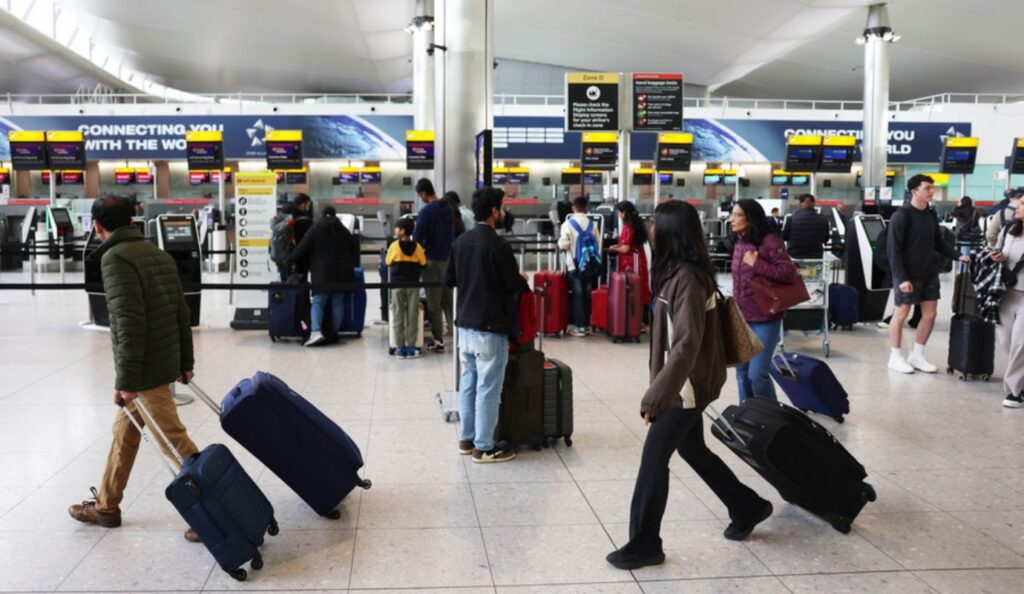Today is expected to be filled with delays at London’s Heathrow Airport, following a cyberattack that caused serious disruptions at several European airports. The problems are mainly centered on check-in systems and baggage handling.
Britain and Belgium are the most affected countries, with hundreds of flights cancelled or significantly delayed yesterday, causing distress to tens of thousands of travelers. The delays are expected to continue today, with Heathrow and Brussels airports being hit hardest.
In Brussels, authorities asked airlines to cancel 50% of flights for today, Sunday, due to problems caused by the cyberattack. RTX, which owns software provider Collins Aerospace, said it was “aware of a cyber-related disruption” to its system at “select airports”.
“The impact is limited to electronic customer check-in and baggage drop-off and can be mitigated with manual check-in operations,” they reported.
According to the BBC, the situation at Heathrow improved overnight, but delays continue. A spokesperson for the National Cyber Security Centre said it is working with relevant authorities and the Department of Transport to fully understand the impact of the incident.
The European Commission said it is “closely monitoring the cyberattack.” A spokesperson added that there were no indications the incident was “widespread or serious” and that it is working with airlines and airports to “restore operations and support passengers.” However, hundreds of flights were delayed or cancelled.
Dublin Airport said both itself and Cork Airport suffered “minor impacts” from the cyberattack.
European aviation safety organization Eurocontrol said airlines were called to cancel half their flight schedules to and from Brussels Airport until early Monday morning.
Airport cyberattack: Possible Russian involvement
While they have not yet identified where the cyberattack originated from, Britain suspects Russia. For now, this is unconfirmed, while it’s noted they don’t rule out involvement by “criminal gangs”.
“It’s too early to know who is behind this attack. Some cyber experts have suggested it could be a ransomware attack, but note that these can also be carried out by state-sponsored actors,” a British official said. Many hacker gangs are based in Russia or other former Soviet countries, some of which are believed to have ties to the Russian state.
Airport systems have shown they are particularly vulnerable, with last year’s characteristic example being their collapse due to a faulty software update from cybersecurity company Crowdstrike, which caused global chaos. That incident exposed the weaknesses and vulnerability of digital systems that continues to exist.




